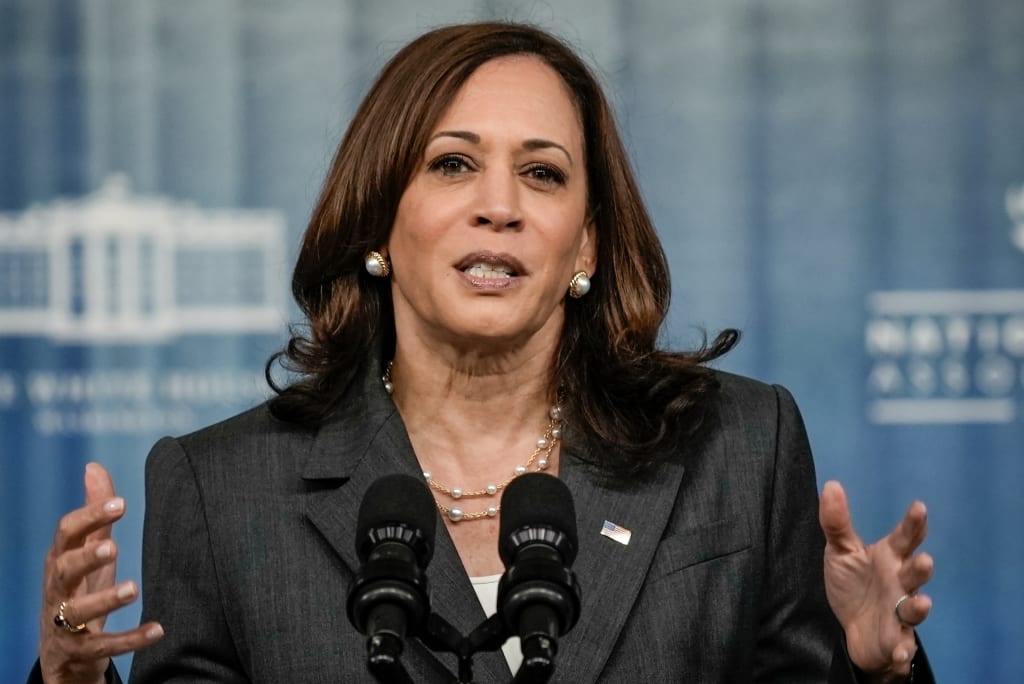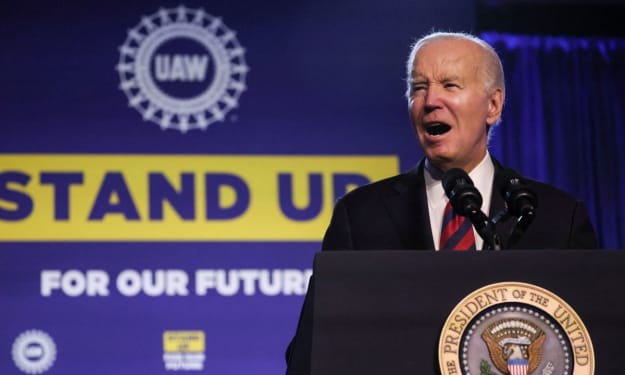Navigating the Immigration Quagmire: Kamala Harris Addresses Criticisms in Exclusive Interview
Kamala Harris Addresses Criticisms in Exclusive Interview

In a recent interview with Vice President Kamala Harris, journalist Katie Couric raised a pertinent point that has been a subject of widespread discussion in recent months: the state of the southern border and the Biden administration's handling of the immigration crisis. Couric pointedly noted that Harris is "not in charge" of the border, sparking a conversation that delves into the complexities of immigration reform and the broader responsibilities of leadership.
The immigration system in the United States has long been considered broken, with calls for comprehensive reform echoing from various quarters. Harris, initially tasked with understanding the root causes of the immigration crisis, found herself in a position where she was not directly overseeing the border. Couric's question reflects the public sentiment, with 68% of Americans expressing disapproval of the Biden administration's approach to the border situation.
Harris acknowledged the broken nature of the immigration system, emphasizing the need for genuine leadership to participate in finding solutions. The Vice President harkened back to the early days of the Biden administration, recounting the introduction of a bill aimed at addressing the flaws in the immigration system. The bill, presented shortly after inauguration, signaled a commitment to reform, but challenges persist as the nation grapples with the multifaceted issues surrounding immigration.
To gain a deeper understanding of the situation, it's essential to explore the nuanced dynamics that contribute to the immigration quagmire. Harris's role, while not directly overseeing the border, places her at the heart of the administration's efforts to understand and tackle the root causes of migration. The Vice President has engaged in diplomatic discussions with leaders of Central American countries to address issues such as poverty, violence, and corruption that drive people to seek refuge in the United States.
However, the disconnect between addressing root causes and the immediate challenges at the border has fueled criticism. Couric's question highlights the need for a comprehensive strategy that not only addresses the symptoms but also fundamentally transforms the immigration system to prevent crises from recurring.
One aspect that often gets overlooked is the collaboration required between different branches of government, including Congress, to enact lasting change. The intricacies of the legislative process, coupled with the polarized nature of contemporary politics, present formidable obstacles to swift and effective immigration reform. Harris's reference to the initial bill presented by the administration underscores the administration's intent, but translating intent into legislative action demands a complex dance within the political arena.
Public perception plays a crucial role in shaping the narrative around the administration's handling of the border crisis. The 68% disapproval rate signifies a widespread concern among Americans, reflecting the urgency of the matter. The Biden administration faces the challenge of not only implementing tangible changes but also effectively communicating its strategy to a skeptical public.
While the Vice President may not be directly in charge of the border, her role in the broader context of immigration reform is pivotal. Harris has the responsibility of navigating diplomatic channels, fostering cooperation with international partners, and advocating for legislative measures that can bring about meaningful change. The immigration crisis, as Couric rightly pointed out, necessitates a multi-faceted approach that transcends partisan lines and prioritizes the well-being of individuals caught in the complexities of migration.
In conclusion, the interview between Katie Couric and Vice President Kamala Harris sheds light on the intricate challenges surrounding immigration reform. The broken immigration system requires a comprehensive and collaborative effort, involving not only the executive branch but also legislative and international partners. While criticism persists, the path forward lies in a steadfast commitment to address root causes, enact legislative changes, and communicate transparently with the American public. The immigration quandary demands visionary leadership and a united effort to forge a path toward a more just and humane system.
Disclaimer
This content has been generated by an artificial intelligence language model. While we strive for accuracy and quality, please note that the information provided may not be entirely error-free or up-to-date. We recommend independently verifying the content and consulting with professionals for specific advice or information. We do not assume any responsibility or liability for the use or interpretation of this content.





Comments
There are no comments for this story
Be the first to respond and start the conversation.